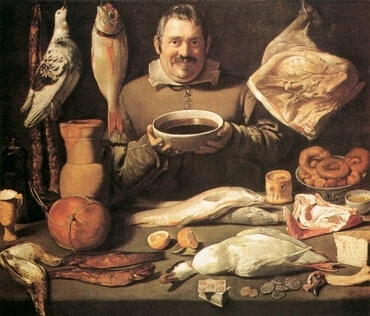1
Huru övergiven sitter hon icke, den folkrika staden! Hon har blivit lik en änka. Hon som var så mäktig bland folken, en furstinna bland länderna, hon måste nu göra trältjänst.
2
Bittert gråter hon i natten, och tårar rinna utför hennes kind. Ingen finnes, som tröstar henne, bland alla hennes vänner. Alla hennes närmaste hava varit trolösa mot henne; de hava blivit hennes fiender.
3
Juda har måst gå i landsflykt efter att hava utstått elände och svåra vedermödor; hon bor nu bland hedningarna och finner ingen ro. Alla hennes förföljare hava fallit över henne, mitt i hennes trångmål.
4
Vägarna till Sion ligga sörjande, då nu ingen kommer till högtiderna. Alla hennes portar äro öde, hennes präster sucka. Hennes jungfrur äro bedrövade, och själv sörjer hon bittert.
5
Hennes ovänner hava fått övermakten, för hennes fiender går allt väl. Ty HERREN har sänt henne bedrövelser för hennes många överträdelsers skull. Hennes barn hava måst gå i fångenskap, bortdrivna av ovännen.
6
Så har all dottern Sions härlighet försvunnit ifrån henne. Hennes furstar likna hjortar som icke finna något bete; vanmäktiga söka de fly bort, undan sina förföljare.
7
I denna sitt eländes och sin husvillhets tid kommer Jerusalem ihåg allt vad dyrbart hon ägde i forna dagar. Nu då hennes folk har fallit för ovännens hand och hon icke har någon hjälpare nu se hennes ovänner med hån på hennes undergång.
8
Svårt hade Jerusalem försynda sig; därför har hon blivit en styggelse. Alla som ärade henne förakta henne nu, då de se hennes blygd. Därför suckar hon ock själv och drager sig undan.
9
Orenhet fläckar hennes klädesfållar; hon tänkte icke på anden. Därför vart hennes fall så gruvligt; ingen finnes, som tröstar henne. Se, HERRE, till mitt elände, ty fienden förhäver sig.
10
Ovännen räckte ut sin hand efter allt vad dyrbart hon ägde; ja, hon fick se huru hedningar kommo in i hennes helgedom, just sådana som du hade förbjudit att komma in i din församling.
11
Allt hennes folk måste med suckan tigga sitt bröd; för vad dyrbart de ägde måste de köpa sig mat till att stilla sin hunger. Se, HERRE, och akta på huru föraktad jag har blivit.
12
Går detta eder ej till sinnes, I alla som dragen vägen fram? Akten härpå och sen till: kan någon plåga vara lik den varmed jag har blivit hemsökt, den varmed HERREN har bedrövat mig på sin glödande vredes dag?
13
Från höjden sände han en eld i mina ben och fördärvade dem. Han bredde ut ett nät för mina fötter, han stötte mig tillbaka. Förödelse lät han gå över mig, han gjorde mig maktlös för alltid.
14
Mina överträdelser knötos samman av hans hand till ett ok, hopbundna lades de på min hals; så bröt han ned min kraft. Herren gav mig i händerna på människor som jag ej kan stå emot.
15
Alla de tappra kämpar jag hyste aktade Herren för intet. Han lyste ut högtid, mig till fördärv, för att krossa mina unga män. Ja, vinpressen trampade Herren till ofärd för jungfrun dottern Juda.
16
Fördenskull gråter jag; mitt öga, det flyter i tårar; ty fjärran ifrån mig äro de som skulle trösta mig och vederkvicka min själ. Förödelse har gått över mina barn, ty fienden har blivit mig övermäktig.
17
Sion räcker ut sina händer, men ingen finnes, som tröstar henne; mot Jakob bådade HERREN upp ovänner från alla sidor; Jerusalem har blivit en styggelse ibland dem.
18
Ja, HERREN är rättfärdig, ty jag var gensträvig mot hans bud. Hören då, alla I folk, och sen min plåga: mina jungfrur och mina unga män fingo gå i fångenskap.
19
Jag kallade på mina vänner, men de bedrogo mig. Mina präster och mina äldste förgingos i staden, medan de tiggde sig mat för att stilla sin hunger.
20
Se HERRE, huru jag är i nöd, mitt innersta är upprört. Mitt hjärta vänder sig i mitt bröst, därför att jag var så gensträvig. Ute har svärdet förgjort mina barn, och inomhus pesten.
21
Väl hör man huru jag suckar, men ingen finnes, som tröstar mig; alla mina fiender höra om min olycka och fröjda sig över att du har gjort detta. Den dag du förkunnade har du låtit komma. Dock, dem skall det gå såsom mig.
22
Låt all deras ondska komma inför ditt ansikte, och hemsök dem, likasom du har hemsökt mig för alla mina överträdelsers skull ty många äro mina suckar, och mitt hjärta är sjukt.







